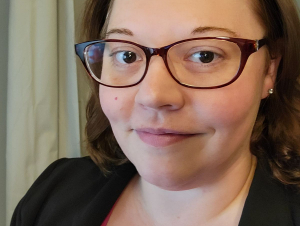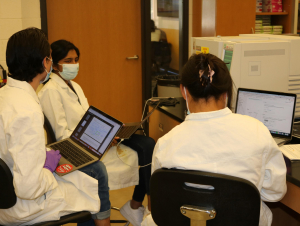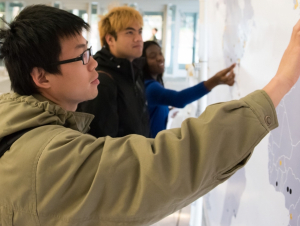To request a media interview, please reach out to experts using the faculty directories for each of our six schools, or contact Jess Hunt-Ralston, College of Sciences communications director. A list of faculty experts is also available to journalists upon request.
Latest News
Satellite counselor Tara Holdampf will provide confidential consultations and support for students, virtually and from the Molecular Science and Engineering Building.
Equipment purchased with Tech Fees make a huge difference in putting sophisticated instrumentation into Georgia Tech's teaching labs, say College of Sciences administrators, giving undergraduates experiences that are beyond those typically found at other institutions of higher learning.
A recent study from the School of Psychology puts a spotlight on how leadership opportunities in early careers can affect workers, with gender differences apparent and implications for the current pandemic-related "Great Resignation" trend in U.S. workplaces.
During International Education Week, the College of Sciences celebrates the impact of international perspectives, connection, and contributions in our community.
One of Georgia Tech’s core values, “We act ethically,” guides our priorities every day. Explore 2021 Ethics Week events, including an interdisciplinary panel of faculty in biological sciences, civil and environmental engineering, business, and public policy discussing teaching ethics and preparing students for ethical dilemmas in their careers.
Found at the boundary between land and water, wetlands function as natural sponges that trap, cleanse, and slowly release surface water – they also serve as a natural climate change buffer, since they act as carbon “sinks,” storing vast amounts of carbon and methane in the ground. Swamps, marshes, and bogs are all examples of wetlands. What isn’t known is if wetlands that become damaged or degraded from excess water will still absorb carbon at the same level. By better understanding how wetlands work, Georgia Tech hopes to shed light on how wetlands will function with more frequent and more intense rainstorms.








